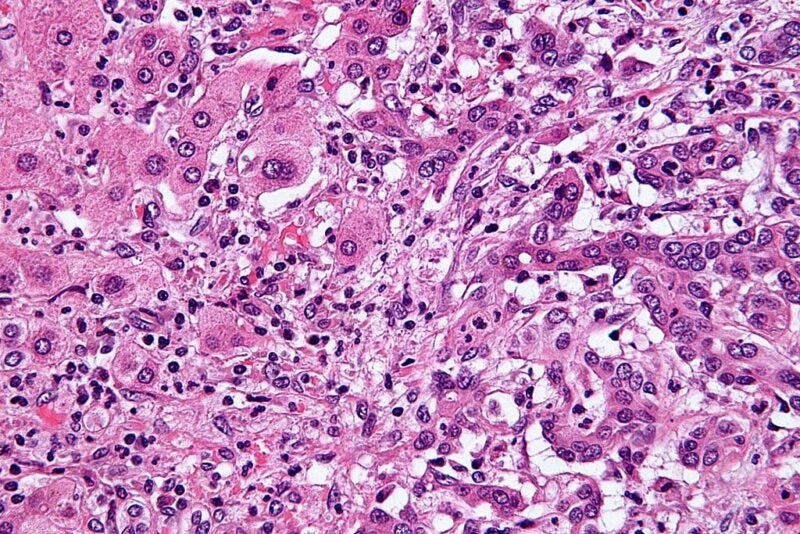
Kinnate Biopharma has dosed the first subject in Phase I KN-4802 clinical trial of its Fibroblast Growth Factor Receptor (FGFR) product candidate, KIN-3248.
An irreversible, small molecule pan-FGFR inhibitor, KIN-3248 is being developed to treat intrahepatic cholangiocarcinoma (ICC), urothelial carcinoma (UC) and various other solid tumours.

Discover B2B Marketing That Performs
Combine business intelligence and editorial excellence to reach engaged professionals across 36 leading media platforms.
It can potentially act on both primary FGFR2 and FGFR3 oncogenic alterations and those claimed to induce acquired resistance to existing FGFR-targeted treatments, including gatekeeper, molecular brake and activation loop mutations seen in tumours such as ICC and UC.
The open-label, multicentre, two-part trial will assess the safety, tolerability, pharmacokinetics (PK), and initial efficacy of KIN-3248 in adult subjects.
It will enrol a total of 120 subjects with advanced cancers with FGFR2 and/or FGFR3 gene alterations.
The Part A or dose-escalation segment of the trial will detect the recommended dose and dosing schedule of the company’s FGFR inhibitor for further analysis in individuals with FGFR2 and/or FGFR3 gene alteration-driven tumours.

US Tariffs are shifting - will you react or anticipate?
Don’t let policy changes catch you off guard. Stay proactive with real-time data and expert analysis.
By GlobalDataIn the dose-expansion phase or Part B of the trial, the safety and efficacy of the KIN-3248 at the recommended dose and schedule will be analysed in FGFR inhibitor-naïve and -pre-treated subjects with FGFR2 and/or FGFR3 gene alteration-driven cancers.
Kinnate chief medical officer Richard Williams said: “With the dosing of the first patient in our Phase I trial of KIN-3248, we are excited to further advance the development of this next-generation therapy which we believe is unique among FGFR inhibitors and has the potential to offer a new targeted therapy option for cancer patients with FGFR-altered tumours.
“We are grateful for the contribution of all the participants in this multicentre trial and for the support of our clinical collaborators at each trial site.”
KIN-3248 was found to possess inhibitory activity across various clinically significant mutations that induce primary disease and acquired resistance to other FGFR inhibitors, in preclinical studies.





